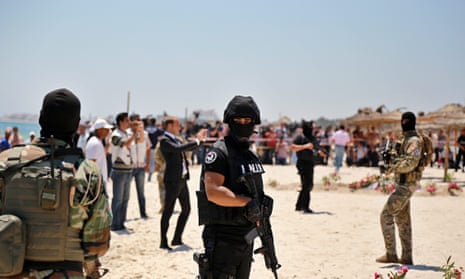The beach massacre in Sousse requires a robust and effective response from Tunisia and from the international community. Tunisia should not be left alone in its fight against terrorism and its fledgling democracy – the first genuine Arab democracy – needs more support than ever.
David Cameron has pledged a “full spectrum” response to terrorism in Tunisia, correctly saying that Britain must stand united with others who share its values. Tunisia will need help purchasing equipment for its security forces, but support should extend well beyond security: measures should reduce, not increase, radicalisation; and support should encourage concrete development initiatives, guided by values of accountability and inclusivity, as well as critically needed security sector reforms.
Forging stronger citizen-government ties is crucial for Tunisia’s often forgotten young people. Such efforts can reduce the ability of individuals intent on engaging in violent extremism – such as Seifeddine Rezgui, the 23-year-old Sousse attacker – to camouflage themselves in distressed local communities.
Vast swaths of young Tunisians feel disillusioned with and disenfranchised by their government, which many perceive as a gerontocracy. Opportunities for employment and meaningful political engagement are limited. Tunisia’s leaders have largely failed to galvanise young people disappointed by the post-revolutionary transition.
Government leaders also need to focus on what matters. Instead of inspiring determination in the face of violent extremism, President Beji Caid Essebsi’s immediate response to the terrorist attack focused on anti-government “smear campaigns”, which he said must cease in the name of security. He singled out Winou el-Pétrole? – Where Is the Petrol – a pro-transparency movement popular among Tunisian youth, as an example. Then the prime minister, Habib Essid, unveiled an unimaginative 13-point response plan that included plans for an anti-terrorism conference, a thousand more police in tourist zones, and the closure of 80 mosques that remain outside the government’s control.
The instinct of Tunisian leaders to roll out repressive measures in place of substantive reforms is reflexive, with a strong muscle memory. Between 1987 and 2011 vague precepts provided legal cover for a dictatorship to impose police state repression. Tunisia’s unreformed military and penal codes still criminalise threats to “public order” and insults directed at the state. Since the revolution these have been used to prosecute individuals ranging from atheist bloggers to critics of police impunity. After the attack on the Bardo museum in March, Tunisia’s parliament reacted by attempting to pass repressive legislation in the form of an anti-terrorism bill that would have extended incommunicado detention and weakened the right to due process.
Such measures are unlikely to counter terrorism effectively. Tunisia and its international partners should promote measures that address the root causes of violent extremism. This is where citizen-oriented governance comes in – guided by meaningful reform, accountability and inclusivity. Notwithstanding the difficulty of preventing attacks on soft targets, concrete efforts to improve relations between the people and the government can help foster an environment that is less hospitable to violent extremism.
Four years after their revolution Tunisians’ core demands remain largely unmet. Unemployment is high, ministries remain resistant to meaningful reform, police impunity proliferates, and corruption has risen. Freedom of expression, the chief gain of the revolution, is increasingly threatened by anti-terrorism measures. Chaotic security situations in Syria, Iraq, and next-door Libya further complicate Tunisia’s attempts at stability and reform.
That said, Tunisia is not necessarily lost in transition.
The country’s leaders can inspire citizens to unite against Islamic State propaganda by laying out a clearer, more inspiring vision of citizen-oriented reforms. International actors can provide smarter, more concretely targeted support to help Tunisia meet these goals. Indeed, a “full spectrum” is needed, but must not be subsumed in a push for security at all costs – including repression.
This would jeopardise Tunisia’s transition, doing an injustice to both the victims of last Friday’s attack and the Tunisians who have fought so hard for a dignified alternative to militant extremism and authoritarian rule.
